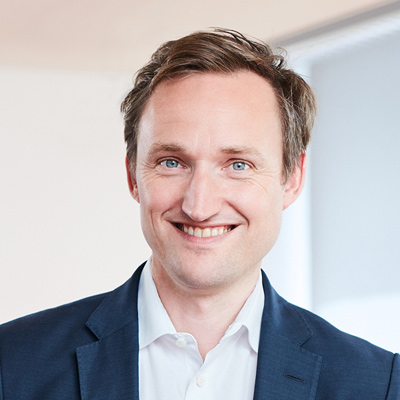Trademark protection for domains
The question of who has the rights to a domain, falls in the field of trademark law in the broadest sense. Especially the word mark is suitable for the protection of a domain name. A word and figurative mark can also provide a certain degree of protection for a domain name if the word elements corresponding to the domain name are dominant in the word and figurative mark, i.e. the graphic design of the trademark takes a back seat to the word elements.
A word mark can be used to protect the pure text of a term or a slogan, which can consist of letters and numbers in any combination. With a word and figurative mark, the layout (type of font, colour, arrangement) of a term or slogan is protected. The German Patent and Trade Mark Office (GPTO) examines whether the domain to be protected has distinctive character.
Domain extensions (http://, https://, www.) as well as top-level domains (i.e. domain endings such as .de, .com., .net, .org, .eu) are descriptive elements of domain addresses which cannot be legally protected. Only the second level domain (e.g. "karo-ip") is protectable in terms of trademark law. Such a second level domain can be protected with a word mark.
Registration of a domain as a trademark at the GPTO
Before filing a request for a German trademark application at the GPTO, a search should be made in the online database of the GPTO to find out whether the planned domain name has already been protected as a trademark by another company. This is not checked by the GPTO prior to registration of the trademark, but might only become apparent at a later stage when the owner of an earlier trademark files an opposition against the new trademark on the domain name.
If the examination of the request by the GPTO subsequently reveals that there are no absolute grounds for refusal (§§ 8, MarkenG), the domain can be registered in the trademark register in the corresponding class of goods and/or services. Absolute grounds for refusal exist, for example, for descriptive domain names such as patentanwalt.*. Such domain names can be registered - but they are not additionally protectable by a trademark.
The applicant is considered to be the owner of the trademark, provided that no opposition from a previous right holder is filed within 3 months from the registration. The term of protection of a trademark is 10 years from the date of application. The trademark protection can be extended for another 10 years after this period has expired.
Domain protection is a consequence of trademark protection
In the sense of simple and consistent brand communication, it is often useful if the domain name corresponds to or at least contains the company or product name. If the company or product name is already protected as a trademark, this automatically also has a protective effect on the domain name, without further steps being necessary to obtain trademark protection.
The owner of a registered trademark can legally challenge identical and similar names in domains if the domain name is confused with the protected trademark in the same industry.
When choosing a domain name, it is therefore always advisable to conduct a preliminary search before registering the domain to ensure that no trademark rights of third parties are infringed.
It is often also advisable to coordinate the registration of trademark rights and domain rights and to do this simultaneously or to apply for trademark rights first and to quickly secure the domain names in question before the trademark application is published. Trademark applications of third parties are often made in order to violate the applicants trademark development. They often aim to demand monetary payments. This practice can be observed in particular when, for example, trademark applications are filed in China. As part of a coordinated strategy for the protection of a new brand name, it is often also very useful to secure relevant accounts of the same name in social networks such as LinkedIn, Facebook or WeChat in China.
Our patent attorneys will be pleased to support you and check, among other things, whether the domain name has been infringed by third parties. Our experts are also happy to advise you on the decision whether German or international protection of the trademark or domain name should be granted.
Regarding Justus Kreuels:

Justus Kreuels, German and European Patent Attorney since 2011/2012, studied mechanical engineering at the TU Munich and the RWTH Aachen. He is co-founding partner of karo IP. A main focus of his practice is the enforcement of intellectual property rights in the field of mobile communication, Internet of Things (IoT), robotics, etc. in Germany.
